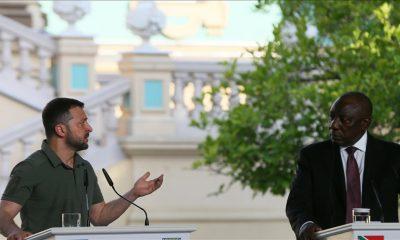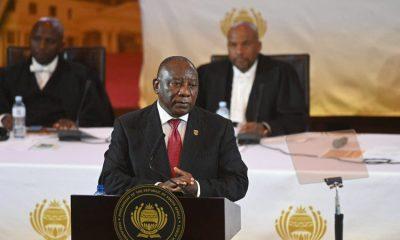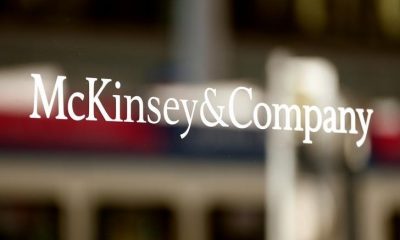411
Busa’s Silence on State Capture Looters Is Unacceptable

The decision by Business Unity South Africa (Busa) to partner with McKinsey—a company implicated in South Africa’s state capture scandal—has sparked outrage across the country. This move comes mere weeks after McKinsey agreed to pay R1.1 billion to South Africa for its role in facilitating corruption during the state capture years.
As the global consulting firm becomes a “supporting partner” to the B20, an engagement group for business participation in the upcoming G20 summit, many are questioning whether this partnership risks normalizing complicity in corruption.
McKinsey and Bain: Symbols of State Capture
McKinsey’s role in state capture is well-documented. The firm worked with Gupta-linked entities, facilitating fraudulent contracts at Eskom and Transnet, among others. The damage caused was not just financial—it robbed millions of South Africans of access to basic services by diverting resources meant for public good into private pockets.
Likewise, Bain & Company played a pivotal role in the collapse of the South African Revenue Service (SARS) under Tom Moyane’s tenure, systematically dismantling one of the country’s most vital institutions. Despite this, Bain has recently been called upon to assist the National Energy Crisis Committee.
The Presidency’s Concerns
President Cyril Ramaphosa’s office has voiced concerns about the involvement of McKinsey and Bain in South African projects, especially as the country assumes the G20 presidency. Critics argue that allowing these firms to participate in high-profile platforms sends the wrong message about accountability and justice.
A Payment Doesn’t Erase the Damage
While McKinsey’s R1.1 billion repayment is a step toward restitution, it does not erase the immense harm caused by state capture.
- Lost opportunities: Corruption diverted billions from education, healthcare, and infrastructure, depriving ordinary South Africans of better lives.
- Broken trust: Partnerships with implicated firms risk undermining public confidence in efforts to combat corruption.
As one observer noted:
“A financial settlement cannot undo the systemic damage caused by these firms. Accountability must go beyond monetary payments.”
Busa’s Role in Normalizing Corruption?
Busa’s decision to partner with McKinsey has drawn sharp criticism for appearing to turn a blind eye to past transgressions.
- By engaging with McKinsey, Busa risks signaling that corporate misconduct can be overlooked as long as reparations are made.
- This undermines the fight against corruption and the broader push for corporate accountability in South Africa.
If South Africa is to rebuild trust in its institutions and governance, partnerships with firms implicated in corruption must be carefully scrutinized. Organizations like Busa play a critical role in setting the tone for corporate ethics, and their silence on state capture looters is deeply concerning.
The country deserves a firm stance against those who enabled state capture. Anything less is tantamount to accepting that corruption is a normal cost of doing business.
Follow Joburg ETC on Facebook, Twitter and Instagram
For more News in Johannesburg, visit joburgetc.com





















